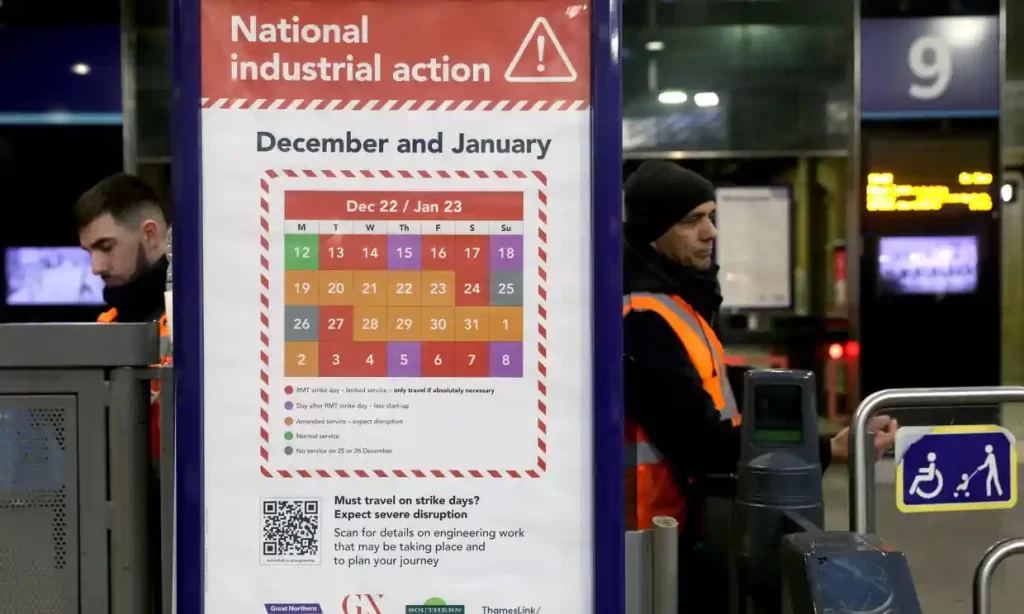The first of five consecutive days of national rail strikes have begun, closing much of Britain’s rail network and leaving only a skeleton service for commuters on urban and intercity lines.
Passengers were being urged to attempt to travel only if necessary, with about 20% of trains expected to run and scheduled hours of operation cut back to between 7.30am and 6.30pm.
Members of the Rail, Maritime and Transport union at Network Rail and 14 train operators are striking for two 48-hour periods, starting on Tuesday and again from Friday.
With signalling staff among the 40,000 RMT members on strike, much of the railway in Wales, Scotland and less populous regions of England will not run at all, while service frequencies will typically be reduced to one train an hour on major routes.
Network Rail has advised people to travel only if absolutely necessary throughout the week and to check online for updates on when services will run.
This week’s strikes come after three weeks of industrial action that severely disrupted the railway over the festive period, including an overtime ban that ended on Monday night that hit certain train operators hard.
The latest action comes with no immediate resolution in sight to the long-running row over pay, jobs and working conditions on the railway. Unions claimed on Monday that rail companies were “in despair” over the government’s handling of the pay dispute, with the Treasury now effectively controlling what settlement can be made.
Mick Lynch, the RMT general secretary, said there had been “radio silence” from the government since a meeting in mid-December.
He added: “They keep saying that they’re facilitating a deal. And I think it’s absolutely the opposite to that.



